#tekkadan
Text





FM 1/100 BARBATOS
YouTube - ZEON REMNANT
#mobile suit gundam#gundam#iron blooded orphans#barbatos#gunpla#mecha#mecha art#mecha anime#plamo#bandai#gundam barbatos#model kit#gundam ibo#mikazuki augus#tekkadan
127 notes
·
View notes
Text
IBO reference notes on . . . the Turbines, or 'Tekkadan done right'
In my notes on an act of unspeakable cruelty, I described the Turbines in Iron-Blooded Orphans as an example of having one's cake and eating it. Pun very much intended, I stand by this assessment: the Turbines are a great example of writing justifying a genre trope; to whit, an anime aimed at teenage boys featuring a group of attractive women in a relationship with a lone man.
Whether that's a worthwhile exercise or not will depend on the viewer's tastes. Personally, I think it would have worked fine without overtly 'cheesecake' designs, though I don't take that as an argument against including them when Tekkadan are walking around shirtless half the time.
And indeed, it's the wider comparisons between the two groups I want to talk about today. There's a clear parallel established throughout the series, which I summarised in that previous essay as 'the Turbines are a successful version of what Tekkadan aspire to be'.
So let's dig into that a little, with full spoilers as usual.
Who are the Turbines?
When they're introduced, we learn the Turbines are in charge of the transportation division of the Jupiter-based Teiwaz conglomerate – an organisation that provides the Japanese-Italian fusion mafia representation sorely lacking from much of popular sci-fi media. Teiwaz is a supposedly reputable enterprise, yet is widely known to be functionally yakuza. Likewise, while the Turbines are described in terms approximating an above-board logistics company, they know how to circumvent official shipping lanes via highly suspect detours.
Of course, this is hardly unusual for IBO, where fine and permeable lines between legal and illicit activities are a fact of life. The Turbines are as legitimate as most people get in this setting and can't reasonably be called criminals (not without being aggressively framed, anyway), yet they aren't wholly 'above-board' either. There is no such thing in the Post Disaster timeline.
Now, the most important detail I want to centre about the Turbines is that they have over 50,000 members. Fifty thousand. Teiwaz is not some nickel-and-dime set-up; they're one of the most powerful (if not the most powerful) organisations in the outer-spheres and their transport subsidiary is correspondingly massive. We don't get the precise number until midway through Season 2 but we are told repeatedly what a huge deal it is for Tekkadan to be in cahoots with them; quantisation simply underlines the point. Naze's 'threat' to split the boys up such that they don't see one another again is far from idle.
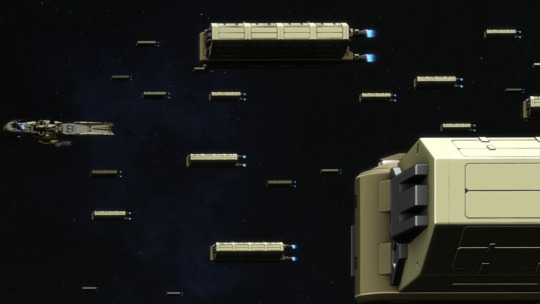
This scale is the result of unifying a large number of individual shipping companies under one banner. Specifically, all-women groups that had previously been on the bottom rung of the solar system's transport ecosystem. The society Teiwaz exists in is depicted as a deeply sexist one. None of the high-ranking leaders are female and we are told outright that women forced from their homes have to turn to extremely dangerous work in order to survive. At least prior to the formation of the Turbines, this involved running cargo along pirate-infested routes, cheaply, with minimal defences.
Here is our first big parallel to Tekkadan. Like the child soldiers of the CGS, these women (and let's be realistic, girls) were rendered vulnerable by their social position and exploited for their labour as a result. I think it's commendable the writers chose to present their situation in this fashion: as easy – and correct – as it is to feel moral outrage about people being exploited for sex, this is a subset of the work dispossessed people are forced into. It would have been easy to give the Turbines a more lurid origin, particularly as this show is not shy about depicting actual sex-trafficking. To focus on something more 'mundane' reinforces that societies run on exploitation are literally that: even innocuous industries like freight haulage are driven by underpaid, under-protected workers.
It is into this situation that a young and ambitious Naze Turbine stepped and via him that at least some of these women found a better position in life.
A family business
We largely see the Turbines through the lens of their flagship, the Hammerhead, and its crew-slash-polygamous-family. When we talk about 'the Turbines', this is usually who we mean, rather than the wider transport company, which mostly exists in the background of the show's events.
The Hammerhead's pursuit of the Isaribi marks the arrival of the Turbines into the plot, first via Lafter's delight in the chase (in a scene leaning heavily on the overt sexualisation of her design) and then with Naze announcing himself to Tekkadan directly, initiating a brief battle between the two groups.
Naze's moral character is established in his reaction to Maruba dismissing Tekkadan as a bunch of 'space rats'. His disgust is aimed squarely at the perpetrator of the risky implantation surgery, setting him apart from the likes of Gaelio and, by extension, the Earth-based taboos against augmented people. We can assume Naze is familiar with both the Alaya-Vijnana system and the consequences of its use, and his ire switches immediately from what he had been told were a bunch of thieves to the man they've 'stolen' from.
With the conflict resolved and Naze willing to negotiate, we begin to learn about the Turbines as a group. Notably, while he refers to his crew as his harem, his agreement with Kudelia that they are his wives is a 'sure, let's go with that' kind of deal. The English dub states 'they are sworn to me' while the sub has him describing them as 'my women'. In either case, the legal status of the arrangement is left ambiguous. But the gist of the matter is that Naze openly presents his crew as a harem, in line with a playboy persona he presents to the world.
In Season 2, we jump back to see how this arrangement came to be. Amida describes him as a 'maverick trafficker' who hired her for protection on a dangerous gig (we never do find out what he was transporting). They got along well and fell into bed together, but Amida wouldn't make the arrangement permanent as she'd promised her services to an all-women freighter company tackling even more dangerous work – a choice implied to stem from having once in their situation. On hearing this, Naze asks the question that distinguishes him from his eventual blood brother, Orga: 'how can I help?'
Orga never asks this aloud, despite everything he does having the stated aim of helping his comrades. It's not hard to see why when his point of reference is Mikazuki, who places absolute faith in his ability to provide solutions to their problems. This fundamentally unfair expectation screws with Orga's sense of responsibility, especially once coupled to the top-down structure of a military unit and an absence of people pushing back against it.
But Naze and Amida meet as adults, not children. They've already grown-up and learned who they are. They engage from positions of mutual respect, each appreciating how the other's skills can help with their goals. Rather than declaring some nebulous, far-off dream, Naze offers assistance to solve a specific problem Amida was already working on. He provides the ability to make connections between disparate groups of exploited woman and a face to present to a misogynistic world.
On top of having the luxury of pre-existing social capital, he can afford to invest years of his time in growing the Turbines to the point where they bring something to Teiwaz's table. This slow, careful approach puts them in a much stronger position to deal with the big dogs, all while aiming for the same things Tekkadan will later rush to seize: security, legitimacy and respect.
This last item bears some scrutiny, because it illustrates the importance of being precise about your goals. We know nothing about Naze prior to meeting Amida, so we don't know why his sexism (because it is still that) eschews looking down on women in favour of elevating them above men. But he feels no shame about achieving business success via a women-only organisation, freely admitting to have gotten where he has thanks to them and holding Amida back from defending him from insults against his manhood that ensue. Naze knows who he needs to impress and it's not loud-mouths like Jasley Donomikols but men like McMurdo Barriston, who value results above all else. Where Tekkadan insist on making as big a noise as possible to establish their credentials, Naze can shrug off disparaging remarks. Why start a fight when he's gained the confidence of the most powerful man in the Jupiter-sphere?
Besides, he adores being where he is. He's actively unrepentant about having enough 'wives' to crew a spaceship and if this partly works to downplay his shrewdness, it's also just who he is. The narrative presents him in an entirely positive light for it, too. Of all the authority figures in Iron-Blooded Orphans, he's easily the kindest, going out of his way to support other people, often irrespective of personal gain.
Tekkadan's recruitment over the course of the series is characterised by radical acceptance. Human debris, repentant murderers, Teiwaz pen-pushers, ambitious college kids – they're all welcomed and placed on equal footing. In light of this, I find it significant that when we see Amida pre-Turbines, she's dressed in a rather understated manner, masking past wounds and presenting in a stereotypically 'professional' fashion – likely to offset the concerns her clients have about hiring a woman mercenary. After years living with Naze, however, she's adopted a much more revealing outfit and attitude, no longer hiding who she is in either words, actions or appearance.

Amida's design is one of the most cheesecaky of the set but it's positioned as a sign that she – like everyone in Naze's orbit – is loved scars and all.
A ship of wives
Gundam has a history of featuring men surrounded by a faithful cohort of women. Starting with Paptimus Scirocco in Zeta Gundam (a decidedly evil example, though oddly enough, also hailing from Jupiter), through Chibodee Crocket in Mobile Fight G Gundam (a much closer match to the Turbine's model), and all the way to Shaddiq Zenelli in Witch From Mercury (where, like a lot of G-Witch's secondary details, it feels like a call-back for the sake of itself), the 'harem' trope is one the franchise has made use of time and again. Rarely, however, has it been as explicit about dropping pretences as with the Turbines. To dip into crudity for the sake of succinctness: yeah, they're fucking.

We are left in no doubt over this. Not only do we see the many children that have resulted, Naze's wives make it clear they expect and enjoy him exercising his spousal responsibilities in the bedroom. And here is where I wheel out my media literacy soapbox because whatever you personally feel about this as a concept, the text presents it as consensual and as free of coercion as it can possibly be.
Yes, there is an inherent power imbalance with Naze being head of the organisation and, quite literally, the man who saved these women's lives. Yes, some of them were clearly recruited to the Turbines as teenagers (as we see in Lafter's backstory). And yes, it's a fantasy that often extends out of sexist perspectives, ones the presentation here does not work especially hard to refute.
However at no point is there any suggestion in the text that Naze pressures anyone into having sexual relations with him. The opposite, if anything. Amida is the only member of the Hammerhead's crew he initiates with – his partner, in every sense of the word. Lots of the others come on to him and he doesn't remotely discourage them, sure. But you've also got Azee, who explicitly choses not to act the same and is just as much part of this core family (while this doesn't rule out her being sexually involved with Naze, it shows there is no expectation of uniform behaviour). Furthermore, when Lafter starts developing romantic feelings for Akihiro – as contrasted with familial ones for the Turbines in general and sexual ones for Naze – literally everyone encourages her to follow them, treating it as perfectly natural and a sign of maturity.
(To head off a rather trite misread, Naze describing his wives as 'like his daughters' in some respects does not invoke literal fatherhood. His 'paternal' statements are in line with the attitude he takes to Orga as his 'little brother' – that of someone with more experience taking responsibility for a more naïve dependent – and I think it's really worth stressing that non-nuclear family dynamics do not map to those of nuclear families. Though unquestionably a patriarch figure, Naze is happy Lafter going to go get what she wants and proud of her choices. The literal opposite of infantilising her.)
Thanks to the Urdr Hunt mobile game, we get a canonical glimpse into how Naze interacts with members of the Turbines beyond the Hammerhead's crew as well. Tamami Rakou is leader of grey-ops team the 'Rakou Pirates', who handle missions it would be better weren't directly associated with the Turbines (yes, their flags is the Turbines' logo with a skull painted over it, why do you ask?). When she reports to Naze halfway through the game, their relationship is revealed as one of friendly mentorship; again not a million miles off his attitude towards Orga. Tamami explains to another character that the Turbines took her in as a hot-headed youth and trained her in business matters. She seeks to repay what she perceives as a debt, with the ultimate goal of sharing sakuzuki cups with her boss. Naze, by contrast, already firmly recognises her worth (that's why he put her in her current role) and cautions her against taking too many risks.
Naze and Amida gently rib the junior captain over the course of these scenes, while Tamami tries way too hard to impress them. The joke is that she's presenting herself with loud, military seriousness in the face of the couple's customary informality, and it hinges on her having nothing to worry about. Naze already values her and cares about her safety. They even end their meeting warning each other not to do anything to make Amida sad, indicating shared affection for Tamami's 'Big Sis'.
All this is positioned without any hint of lasciviousness. When Naze looks forward to hearing stories of Tamami's exploits over drinks later, there's apparently no expectation of anything more. I bring this up to highlight the boundaries in the Turbines' living arrangements. Naze expresses admiration for women as a category, but he's no skirt-chaser. The polygamy is not mandatory and his support and generosity are not predicated upon it.
Also, and I fully appreciate this is its own brand of male bravado, the sexual side of the Turbines is mostly described as Naze pleasing his wives rather than the other way around. The story goes out of its way to make clear how OK everyone is with the arrangement, including an obligatory 'harem strike' joke to underline that while Naze may have institutional power, they outnumber him.
It should scarcely need stating that Iron-Blooded Orphans is not depicting relationship dynamics one should aspire to. Then again, I'm posting this on the internet, where reductio ad absurdum is treated as winning, so let's state it outright: pretty much every relationship in this show is some level of borked. From Shino and Yamagi's teenage inability to communicate, to McGillis indulging Almiria's childish fantasies of adulthood within a marriage they've been forced into, to Mika and Orga's entire deal, everyone is doing the best they can while setting each other up for a lifetime of therapy they're not going to get.
The flip side of this is that those same relationships are a source of support and joy for characters experiencing extremely harsh, miserable lives. In almost every case, the toxicity is intertwined with genuine love, and for the Turbines, the toxicity gets firmly minimised, counteracted by Naze's personality and by how his wives interact with him.
I am not going to stand up and say the Turbines are a model of healthy polyamory. Being married to your boss is rarely a good thing in reality. Within the show, however. it's presented as wholly positive and supportive to a degree that the other entanglements can only aspire.
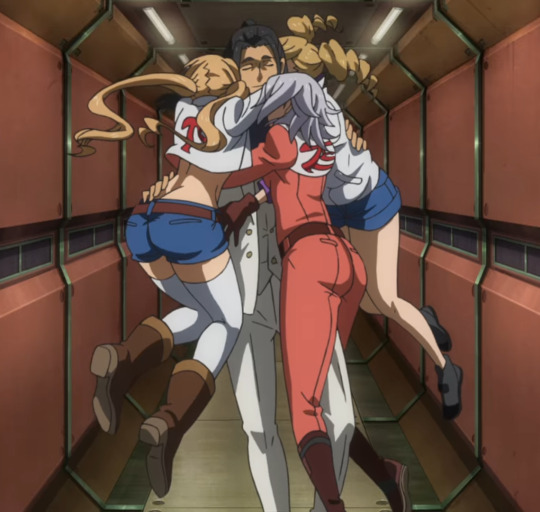
Sunset
Nothing lasts forever though. Isn't that the saying? Part reproach, part reassurance, it asserts that all is ultimately impermanent, no matter how much we might hope or fear otherwise. Orga sets his stall out in the name he gives his newly-liberated band of fighters: an iron flower, never wilting and never dying. Something impossible, that is ended prematurely by his rush to ensure its existence.
The Turbines are firmly established by the time they enter the story and as I've discussed, their rise is depicted as a cautious, time-consuming process. They have a fierce reputation – nobody messes with them, at least not without some high-ranking Earth bigwig offering plenty of money – but it's one tied to Teiwaz as a whole and that coupling of fortunes is both strength and weakness.
When the hammer comes down and Gjallarhorn begin interdicting Turbine ships, Naze wonders if McMurdo himself might be responsible. This suspicion comes after half a season of internal politics following Tekkadan's unexpectedly rapid ascent within Teiwaz. Their victories reflect well on Naze, since he brought them into the fold, but also cause the other high-ranking members to fear what they perceive to be his ambition. Things come to a head when Tekkadan align themselves with McGillis's attempt to seize power. With the youngest, upstart members of the organisation promised sovereignty of Mars (and its lucrative half-metal mining operations), a target is painted on Naze's back.
Of course, it isn't McMurdo who acts against him but Jasley, envious of Naze's position as the boss's favourite and wanting nothing more than to seize control of the transport division. There's no doubt he'd have sent the Turbines back to square one, exploiting them for his own gain. Jasley is very much in tune with the ambient misogyny and a conniving bastard to boot. He imagines by inciting Iok Kujan to destroy his rival, he will become next in line for control of Teiwaz itself.
He doesn't get away with it. The damage is done nevertheless.
When I say 'the Turbines are Tekkadan done right', it is a statement regarding success at their shared goals. Providing marginalised people with safety and security, enriching them through employment on their own terms, and establishing their long-term legitimacy – these represent the aims of both groups. The Turbines, however, achieve them at scale. Over 50,000 members! Operations from Jupiter to Venus! The ear of the head of Teiwaz! And, via groups like Tekkadan and Foundling (who Tamami is still mentoring at the point of writing; the survival chances of doofy gremlin children may go down as well as up), the opportunity to guide a new generation in a changing world.
But – and of course there's a 'but'; there was always going to be a 'but' – 'done right' does not mean 'perfect'. It does not mean 'forever'. For all the benefits the Turbines accrue for themselves, theirs is still a dangerous business. The risk may be reduced by solidarity but it doesn't go away. They still have to fight pirates and undertake jobs of dubious legality. Furthermore, as Jasley proves, they amass enemies as well as allies. Disruption to the social order creates ripples even – especially – when done with the best of intentions.
Above all, there's the question of whether their methods are sustainable. Throughout this piece, I have consciously centred Naze because that's what the Turbines' strategy is. Using him as a focal point around which to gather and an acceptable representative to men who wouldn't otherwise give them the time of day. While they might have achieved much simply by cooperating and are implied through Tamami to have retained considerable autonomy, it is Naze personally who allowed these women to escape the bottom of the heap.
This leaves them with a hideously dangerous vulnerability. The Turbines are inextricably tied to Naze's personal fortunes and those plummet in a second the instant Jasley shops him to Iok. By the rules of Teiwaz and his own sense of honour, Naze cuts ties with McMurdo to prevent Gjallarhorn pressing charges against the conglomerate. He expends all the good will he has accrued over the years to beg his now-former boss to take his people in. And then he and Amida sacrifice themselves in a nearly-vain attempt to safeguard their immediate family.
Worst of all, the catalyst for this is the very generosity of spirit that got Naze involved in the first place. He gives Tekkadan a chance and keeps doing so even as the cracks begin to show. He indulges Orga's ambitions out of the sense he's looking at his family's younger selves. As a result, he ties himself to them and is sent to his death by the wider consequences of their actions.
Amida describes Naze's love for her in terms of food: it is better to share a fine meal with others than to settle for average fare kept to yourself. That Naze was willing to share himself with so many people is laudable. But it is also his downfall and marks the harsh limitations of using the systems of the Post Disaster setting to imrpove a situation.
When you make deals with tigers, you have to remember what will happen should they get hungry.
A future even so?
Officially speaking, the Turbines end with Naze and Amida. The survivors are folded into what we might call Teiwaz-proper, directly under McMurdo's authority. When we next see them, they are clothed in drab black jackets, save for Azee who has traded her pink jumpsuit for a version of Naze's customary white suit. As the last remaining member of Amida's mobile suit squad, it seems leadership of this rebranded fleet has fallen to her, a position she uses – with McMurdo's blessing – to rescue Tekkadan's own dwindling numbers in their time of need.
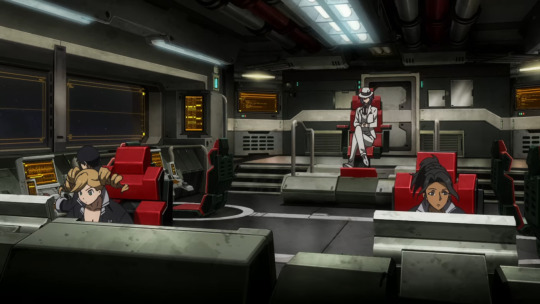
Here we find the two groups paralleling one another once again. Lives are spared at the expense of identity. A leader who truly cared is lost and the outcome is decided by a pragmatist. We don't see much of what happens to the Turbines now they've been consumed by Teiwaz's male-dominated hierarchy. What we do know is that, in the short term at least, they have been forbidden from carrying weapons and doing the kind of escort work the Hammerhead excelled at. This alone marks a steep reduction in their power.
While McMurdo certainly looks favourably on his new subordinates, he is no replacement for the man who saw them as the sun. His decision to cast Jasley to the wolves was motivated as much by heading off a rival as by avenging his preferred 'son' – and he's clearly not getting any younger. One can only speculate where a few years might land everyone in this new arrangement (indeed, one has).
The Turbines' story contains remarkable achievements and at the same time showcases the fragility of any achievement made within an unjust society. It took Jasley a single phone-call to annihilate everything Naze and Amida built. Many good people died and the happiness Naze's wives found with him did not last. His children can hardly be considered orphaned but their fate is left up in the air, albeit weighted more kindly than their parents' lives began.
Which is something that should not be dismissed. Iron-Blooded Orphans reflects a lot of harsh, miserable realities about what happens to those unfavoured by the world's structures. But it refuses to downplay the steps they take towards a better future. Amida was already fighting to protect those left in the cold and Naze followed her lead. Even if the very things that enabled him to do so much eventually turned into a trap, it still matters that he did what he could. It still counts.
There may not actually be a way to 'do Tekkadan right'. Its context is flawed, harmful and frequently vile. In a just society, nobody would need the strategies the Turbines use to carve a place for themselves – there would be no ladder for anyone to fall to the bottom of. Yet in its absence, there are and have always been people who try their best to rebalance the scales, resisting the narratives they are fed in whatever ways they can. That needs to be valued. I'm glad IBO does so.
Because fleeting joy is joy all the same. Love exists under the toughest conditions. And, in the end, Azee and Eco follow the example of those who've gone before, stepping forward to ask:
How can we help?
Other reference posts include:
IBO reference notes on … Gjallarhorn (Part 1)
IBO reference notes on … Gjallarhorn (Part 2)
IBO reference notes on … Gjallarhorn (corrigendum) [mainly covering my inability to recognise mythical wolves]
IBO reference notes on … three key Yamagi scenes
IBO reference notes on … three key Shino scenes
IBO reference notes on … three key Eugene scenes
IBO reference notes on … three key Ride scenes
IBO reference notes on … the tone of the setting
IBO reference notes on … character parallels and counterpoints
IBO reference notes on … a perfect villain
IBO reference notes on … Iron-Blooded Orphans: Gekko
IBO reference notes on … an act of unspeakable cruelty
IBO reference notes on … original(ish) characters [this one is mainly fanfic]
IBO reference notes on … Kudelia’s decisions
IBO reference notes on … assorted head-canons
IBO reference notes on … actual, proper original characters [explicit fanfic – as in, actually fanfic. None of them have turned up in the smut yet]
IBO reference notes on … the aesthetics of the mobile frame
IBO reference notes on … mobile suit designations
IBO reference notes on … the Gundams (part 1)
IBO reference notes on … the Gundams (part 2)
IBO reference notes on … the Gundams (part 3)
#gundam iron blooded orphans#gundam ibo#g tekketsu#tekketsu no orphans#turbines#naze turbine#amida arca#tekkadan#reference#notes#spoilers#major spoilers#I considered illustrating the section on their downfall too#but I didn't want to make myself cry
29 notes
·
View notes
Text

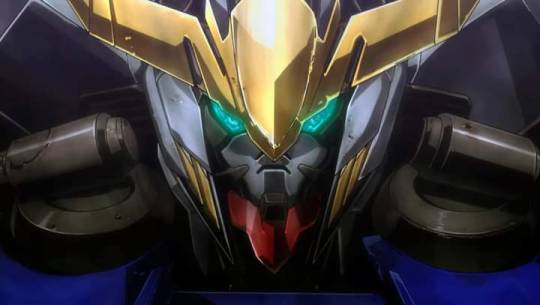
On this day 8 years ago, the flag was raised.
It may not have been a favorite amongst the community, but I still enjoyed it despite its flaws.
LONG LIVE TEKKADAN
24 notes
·
View notes
Text
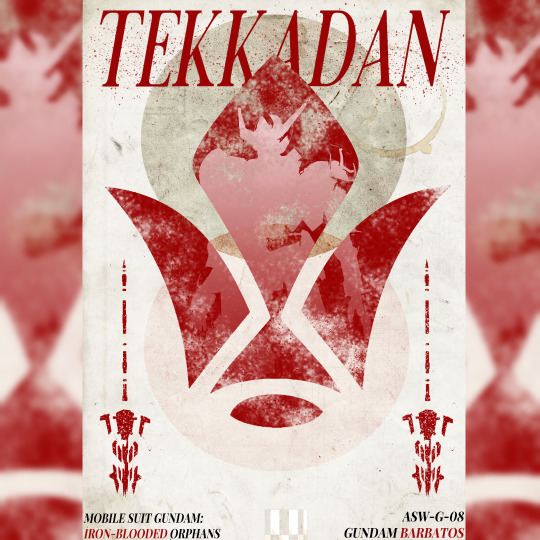
Raise Your Flag!
I'm finally getting through my backlog of commissions after a very busy and stressful time in my life and a friend had asked for a Iron-Blooded Orphans inspired piece and so this is what I came up with. I really wanted to lean into the "messy print" aspect in this piece and I think I did well. Hope I did the Tekkadan boys proud alongside all you IBO fans out there! Thanks for looking!
P.S. My commissions are still open! Looking to pay off just a few more things and get more settled into my new apartment!
#art#artists on tumblr#graphic design#digital art#commission#gundam#mobile suit gundam#iron blooded orphans#ibo#gundam ibo#tekkadan#poster
18 notes
·
View notes
Text
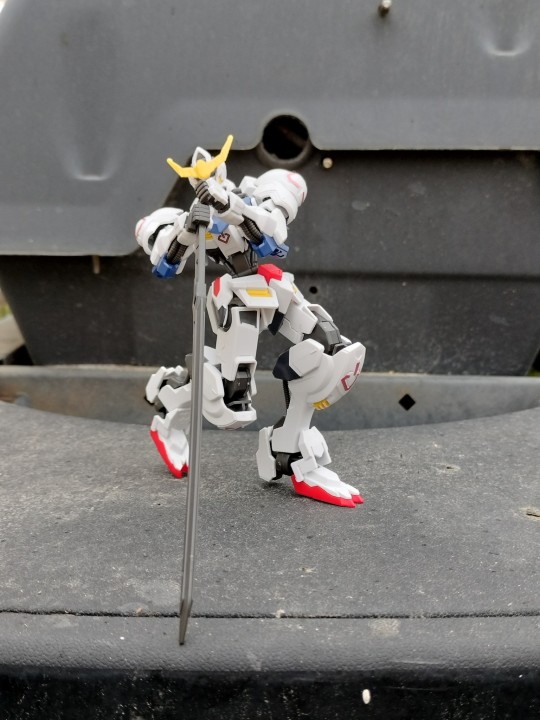
2 notes
·
View notes
Text
Tattoos i'm going to get
Left Shoulder: Tekkadan Symbol

Right Shoulder: Mark of Cain

Back of trap/neck: Sasuke Curse Mark

3 notes
·
View notes
Text

#WHAT#you thought we were FINISHED?#that we would just roll over and fucking die like dogs?#YOU CANNOT BREAK SPIRITS OF IRON#YOU WILL BE BROKEN IN RETURN#TEKKADAN#IBO#URDR HUNT
1 note
·
View note
Photo
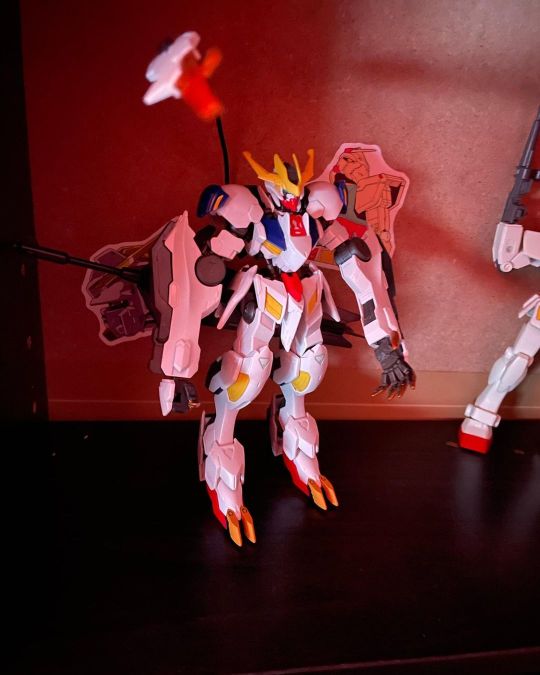
Second Number One favorite Gundam. Barbatos Lupus Rex from Iron-Blooded Orphans!! #gunpla #MobileSuit #Gundam #Tekkadan https://www.instagram.com/p/Ckp0VuIOHZC/?igshid=NGJjMDIxMWI=
0 notes
Text


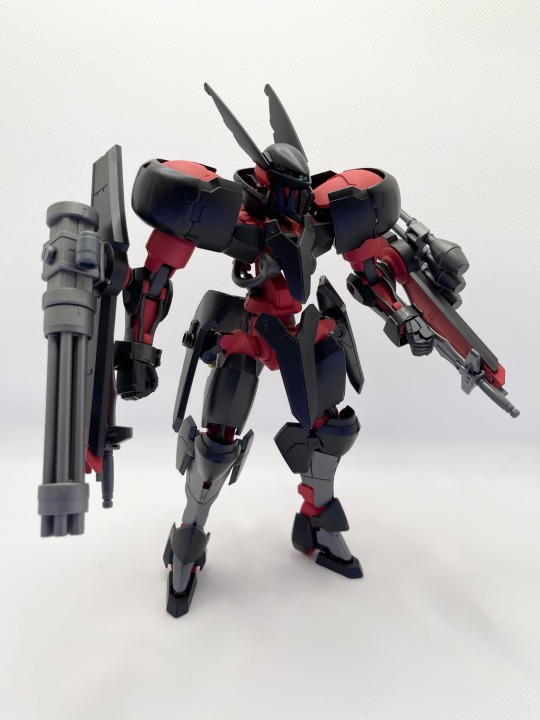
FM 1/100 Grimgerde
YouTube - ZEON REMNANT
#mobile suit gundam#gundam#iron blooded orphans#mecha#mecha art#mecha anime#plamo#gunpla#gunpla builder#bandai#bandai namco#gundam ibo#model kit#gundam base#photography#hobby japan#newtype#tekkadan
59 notes
·
View notes
Link
Another fan-sub by Trafalgar Log. This time, it’s the first of the IBO side stories from the Iron-Blooded Orphans G mobile game. In Orga’s absence, Eugene is given the task of interviewing potential new recruits . . .
Notes under this cut.
OK, so I am a little disappointed by the limited amount of actual animation in this game. I probably shouldn’t be since that stuff costs and is time consuming compared to ‘talking head’ cutscenes but still. I would have loved to see this in full motion.
Because oh my word is Zack the pushy arsehole you’d expect him to be at a job interview and him winding Eugene up by acting exactly like Eugene used to is lovely. I’ve always thought hypocrisy is key to Eugene’s character and it’s nice to see him extending the benefit of the doubt to someone with a similar attitude.
I thought the second candidate was going to turn out to be Hush, then remembered the timing doesn’t match, since he joined later on.
It’s also nice to see Eugene’s uncertainty around being deputy boss. It’s gestured to in Season 2 but this is him coming out and saying he doesn’t think he’s suited to the role, which is a great beat. Because he absolutely is suited to the organisational side of things (and making contextually correct decisions with other people’s lives) and it’s good to have confirmation he rose to the challenge of the role over his own doubts.
Also, speaking of hypocrisy -- really Orga? Not a fraternity? Uh huh. Riiiight.
But it is kind of heartbreaking to find out Orga gave Eugene the job to keep himself in line, since that’s the one part where Eugene falls down big-time, letting himself be talked out of his doubts or into putting everything on Orga until it’s far too late.
Because OH MY GOOD GODS, Eugene’s reaction to having Orga agree with him on hiring Zack. Could you be more obvious about your pigtail-pulling crush, you utter dork?!
Which of course leads to the usual massive over-compensation and insult-slinging over Orga’s blatant asexuality lack of experience with women. Glad to see no one is letting Eugene get away with bigging himself up on the score, though Orga is a lot less composed about it than Shino. Which I feel is fair enough.
How many times to we reckon Merribit has had to yell at them for this kind of behvaiour, do we think? I’m going with lots. Lots and lots and lots.
(Though she doesn’t exactly help with that ‘pure of heart’ line about Orga. Sheesh. But then trolling Orga is clearly one of her pleasures in life, compared to all the nonsense she has to put up with, so it’s hard to begrudge her it too much.)
Anyway, adjacent to all this, as someone who watched the dub (which is a really great dub), it’s interesting to compare voice acting with the original. I don’t know if it’s purely a language thing, but the characters sound a lot older to in Japanese (I’ve thought the same with the bits and pieces of Mika I’ve listened to). I wonder if we’ll ever get a dubbed version - I kind of hope so because I reckon the English voice actors would have a blast with this scene.
#GUNDAM#Gundam Iron-blooded Orphans#gundam ibo#g tekketsu#Tekketsu no Orphans#Iron-Blooded Orphans G#side-stories#reference#notes#Eugene Sevenstark#Orga Itsuka#Tekkadan
7 notes
·
View notes
Photo

Yes, more backlog Christmas art. I had a lot to catch up on! But of course I had to do Padoru chibis of Kitten and Tekk back in December!
I promise this is the last of the winter art though xD
Other Places To Find Me
My Twitter
My Twitch
My Youtube
Posted using PostyBirb
#Tekillust#Vtuber#ENVtuber#VTuberEN#cat#genderfluid#padoru#christmas#chibi#snowflakes#santa#winter#Kitten#Tekk#Tekkadan#kittenfuzzart#anime#snow
0 notes
Text
IBO PUBLIC SERVICE ANNOUNCEMENT
In a strictly legal sense, you’re only allowed to call Mika’s situationship a harem if you’re also referring to Orga Itsuka.
That’s it, sorry to interrupt you all.
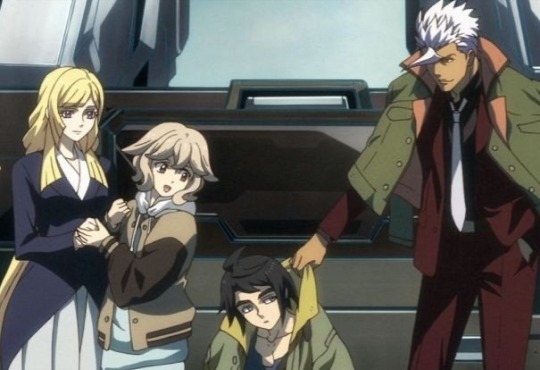

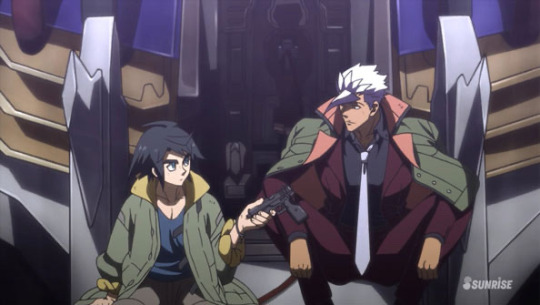
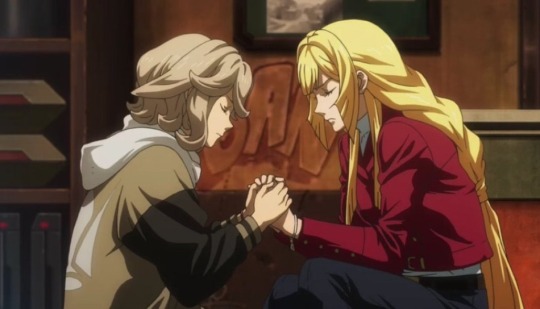
#Gundam#ibo#iron blooded orphans#I just really like them is the thing#Orga would have had a room in that farm if Tekkadan made it out alive
38 notes
·
View notes
Text


The lore of the Shino/Yamagi Master Rare Holo Try Age card has a special place in my heart T-T
"Let's end this batle!!"
[Shino] and Yamagi
[Whaat?! You're asking about those two? Hmm... There is something unique about the way Yamagi is dealing with Shino, I think... hmm] [Bwahaha! Don't force yourself to use this useless brain of yours. It's not about what outsiders say whether they're friends or buddies. It's all OK as long as it makes them both happy!]
(Tekkadan members)
Pilot's skill: A promise made to Yamagi's feelings for Shino
#gundam#gundam iron blooded orphans#gundam ibo#yamagi gilmerton#norba shino#ibo#iron blooded orphans#try age#Tekkadan - the bastion of progressivism and tolerance
21 notes
·
View notes
Text
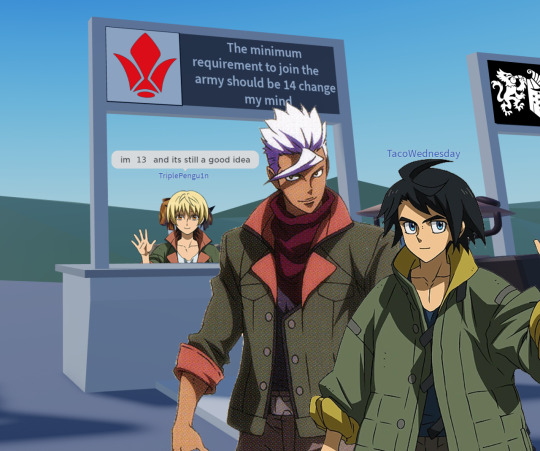
#gundamposting#gundam#this is actually significantly raising the age of tekkadan members but I'm not editing the entire image
99 notes
·
View notes
Text

This man?
He's about to catch some fucking hands.
#eprika rambles#gundam ibo#iron blooded orphans#I HATE HIM AND HIS SMUG TRAITOROUS FACE#THE DISRESPECT HE SHOWED TO TEKKADAN--TO TAKAKI#i'm so livid
6 notes
·
View notes